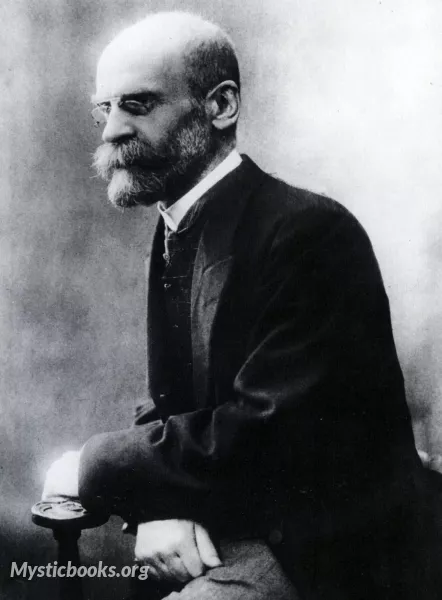
Timeline
Title
Country/Nationality
Émile Durkheim
Émile Durkheim, a prominent figure in the field of sociology, left an indelible mark on the discipline through his groundbreaking theories and influential works. Born on April 15, 1858, in Épinal, France, Durkheim is widely regarded as one of the founding fathers of modern sociology. His principles, theories, and contributions have greatly shaped the field and continue to resonate today.
Durkheim believed in the scientific study of society and sought to establish sociology as a distinct academic discipline. He emphasized the importance of social facts, collective consciousness, and the influence of social structures on individual behavior. Durkheim's work focused on understanding the role of social integration, social order, and moral cohesion in society.
One of the most significant principles Durkheim espoused was the concept of social solidarity. He argued that society maintains its coherence through two forms of solidarity: mechanical solidarity, which is based on shared beliefs and values in traditional societies, and organic solidarity, which is based on interdependence and division of labor in modern industrial societies. This theory revolutionized the understanding of social cohesion and the dynamics of social change.
Durkheim is famous for his groundbreaking book "The Division of Labor in Society" (1893), where he explored the social and moral consequences of the division of labor in society. This work laid the foundation for his later works, including "Suicide: A Study in Sociology" (1897), which examined the social factors influencing suicide rates, and "The Elementary Forms of Religious Life" (1912), in which he analyzed the role of religion in society.
Émile Durkheim's philosophy emphasized the importance of social order, social integration, and the collective conscience in maintaining a healthy and stable society. He believed that understanding social facts and their influence on individuals is crucial for the betterment of society.
Durkheim passed away on November 15, 1917, at the age of 59. He is remembered as a pioneering sociologist who transformed the field with his empirical research, rigorous methodology, and profound theoretical insights. His work continues to be influential in various sociological subfields, including sociology of religion, criminology, and social theory.
A fascinating fact about Émile Durkheim is that he established the first academic department of sociology in France at the University of Bordeaux in 1895. This significant milestone further solidified sociology as a legitimate field of study and helped shape its development as an academic discipline worldwide.
In conclusion, Émile Durkheim's legacy as a sociologist and his notable works have left an indelible impact on the field of sociology. His principles, theories, and empirical research have shaped our understanding of society, social order, and collective behavior. Durkheim's philosophy and contributions continue to be studied and celebrated, solidifying his status as a revered figure in the history of sociology.
Books by Émile Durkheim

The Elementary Forms of the Religious Life
Discover the fascinating world of religious life in Émile Durkheim's groundbreaking work, "The Elementary Forms of the Religious Life," translated by Joseph Ward Swain. Published in 1912, this influential book delves deep into the essence of religion...